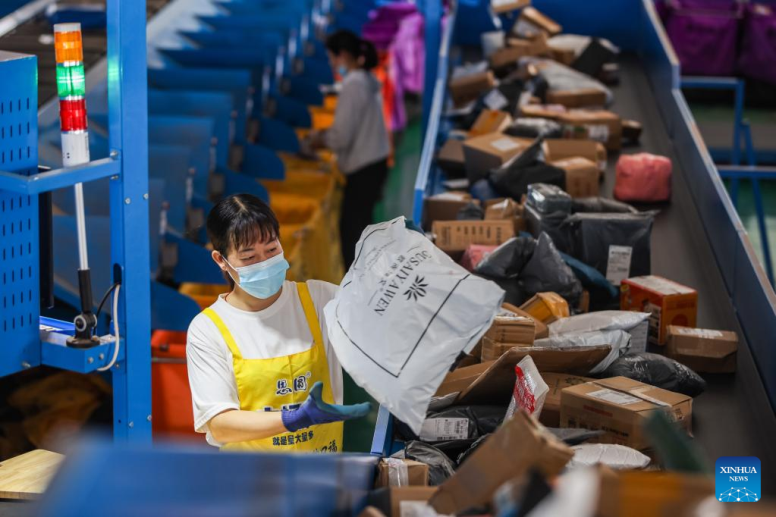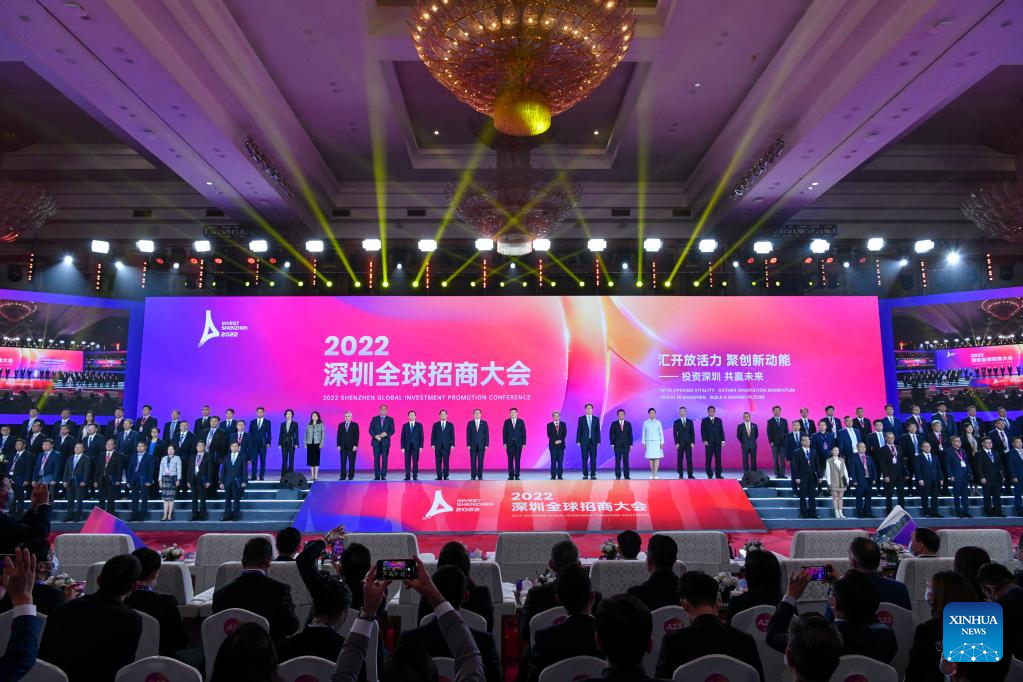Opening Opportunities for Investors

China’s Central Economic Work Conference is an annual meeting organized by the Chinese government to set economic and social policies for the coming year. The main goal of the Central Economic Work Conference in December 2022 was to review the country’s economic performance over the year 2022, assess the current economic situation, and outline plans for the future development of the economy. The review provides a clearer understanding of China’s economic situation and empowers policymakers to identify potential challenges or problems that might need attention.
The conference discussed measures to maintain steady economic growth, promote structural reforms, and improve the lives of the people, emphasizing a need to continue promoting higher-level opening up to the outside world. The important event shapes the direction of China’s economic development and economic policy for 2023.
Stable Economic Performance
In terms of economic performance, China’s GDP increased by 8.4 percent to 114.92 trillion yuan (US$16.52 trillion) in 2021 according to updated data released by the National Bureau of Statistics on December 27, 2022, and the number is expected to grow by at least 4.4 percent in 2022. This was a slower pace of growth compared to the double-digit growth rates that China experienced in the past, but it was still relatively strong compared to other major economies. China’s economy is supported by strong domestic demand, with consumer spending and investment in fixed assets both contributing to growth. However, the economy has also been affected by external factors such as trade tensions with the United States and slowing global demand caused by the COVID-19 pandemic, which weighed on exports and growth. In a recent research note, Morgan Stanley raised its forecast for China’s GDP growth in 2023 to 5.4 percent from its previous outlook of 5 percent. China’s economic activity will return to pre-pandemic levels in the second quarter of 2023 and continue growing until the end of the year, according to the Wall Street firm.
Overall, China’s economic performance has been stable, with the government introducing measures to support economic growth. The Chinese government has made efforts to open the country’s market and create a more welcoming environment for foreign businesses to attract foreign investment to support economic growth. It has also taken steps to improve the business environment by reducing barriers to entry, simplifying registration processes, and improving the legal and regulatory framework protecting foreign businesses. The government has also focused on addressing structural issues in the economy such as rising debt levels and overcapacity in certain sectors to promote more sustainable and balanced growth in the long term.
China is currently the world’s second-largest economy and a major player in the global economy. While challenges and issues remain for the Chinese government to overcome, the country continues to be an important contributor to global economic growth. China has achieved important milestones in recent years including rapid economic growth, improved living standards, and increasing global influence.
Over the past few decades, China’s rapid economic growth has resulted in GDP expanding at an average annual rate of around 10 percent. This has helped lift millions out of poverty and contribute to China’s emergence as a major global economic power. Rapid economic growth in China has improved living standards for the people. Per capita income has increased significantly, and the country has made significant progress in areas such as education, healthcare, and social security. As its economic and political influence grows, China is playing an increasingly important role in global affairs. It has become a major player in international organizations such as the United Nations and the World Trade Organization. The Chinese government is enthusiastic about sharing these achievements and its experience with the rest of the world to promote common development.

The 2022 Shenzhen Global Investment Promotion Conference is held in Shenzhen, southern China’s Guangdong Province, December 9, 2022. (Photo by Liang Xu/Xinhua)
Foreign Firms Confident in China’s Economy
By clarifying China’s economic situation and policies, the government aims to provide transparency and stability for the international community and live up to international expectations for the country’s economic development. This will reduce uncertainty and promote international confidence in the Chinese economy, which in turn attracts foreign investment.
Recognizing the importance of international trade and investment in driving economic growth, the Chinese government has made efforts to create more opportunities for foreign businesses to enter the market and engage in mutually beneficial cooperation with domestic firms.
Claims that China’s economy is broken down or that foreign capital is leaving China en masse don’t hold up to the tiniest bit of scrutiny. While it is true that some foreign businesses faced challenges in China during the COVID-19 pandemic, overall foreign investment has remained stable. According to data from the United Nations Conference on Trade and Development, foreign direct investment (FDI) inflow into China has been steadily increasing over the past decade.
The country’s robust economic growth and enormous market potential continue to attract foreign investment. FDI into the Chinese mainland, in actual use, expanded 9.9 percent year on year to nearly 1.16 trillion yuan (US$169.13 billion) in the first 11 months of the year 2022, according to the Ministry of Commerce. FDI reached US$178 billion, up 12.2 percent from last year. The service industry saw FDI inflow increase by 0.9 percent year on year to 842.61 billion yuan (US$122.85 billion), while that of high-tech industries jumped by 31 percent from last year. Specifically, FDI in high-tech manufacturing surged 58.8 percent from the same period a year ago while that in the high-tech service sector rose 23.5 percent year on year. During the period, investments from South Korea, Germany, Britain, and Japan rose by 122 percent, 52.6 percent, 33 percent, and 26.6 percent, respectively. FDI flowing into the country’s central region reported a year-on-year increase of 28.6 percent, followed by 24.6 percent in the western region, and 7.7 percent in the eastern region.
More than 99 percent of foreign firms surveyed in China also expressed confidence in the country’s economic outlook for 2023, according to the China Council for the Promotion of International Trade (CCPIT), the nation’s leading trade-facilitating body. The confidence was partly attributed to China’s commitment to high-level opening up at the conference, which outlined plans to attract and utilize foreign capital, widen market access, further open the modern services sector, and grant foreign-funded enterprises national treatment.
Around 91 percent of such firms in China are positive about the country’s response to the COVID-19 situation. About 98.7 percent of respondents stated that they would retain and increase their investment in China, according to a recent survey of more than 160 foreign firms, commerce chambers, and associations conducted by the CCPIT. Moreover, 89.8 percent of the respondents in the survey revealed that they would maintain their local industrial chains, and 10.2 percent expressed intentions to shift overseas industrial chains to China. The survey speaks volumes for the resilience of China’s economy and its strong, comprehensive, competitive advantages in market potential, industrial systems, infrastructure, and business environment.
The author is founder and director of the Xu Fancheng Culture Study Center and secretary-general of the Pondicherry India-China Friendship Association.
